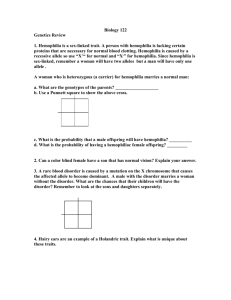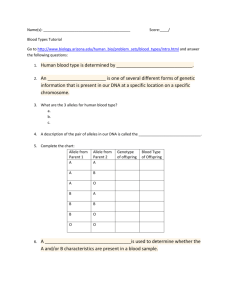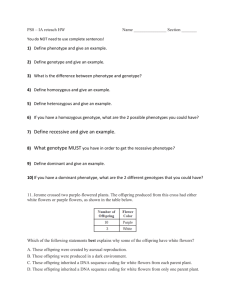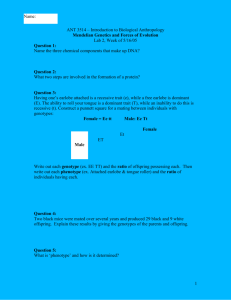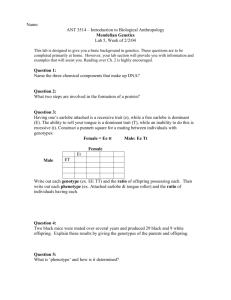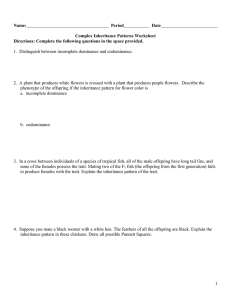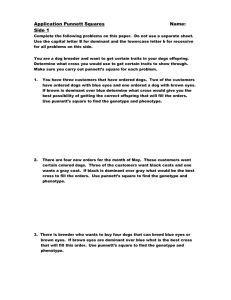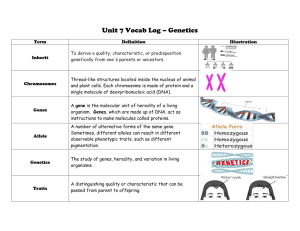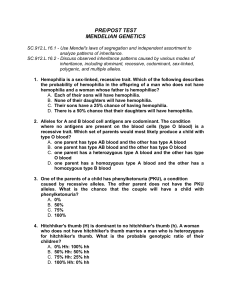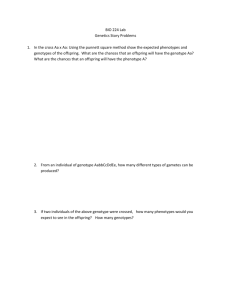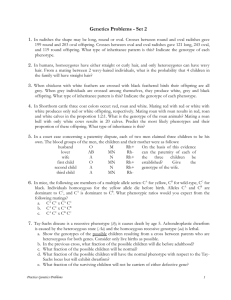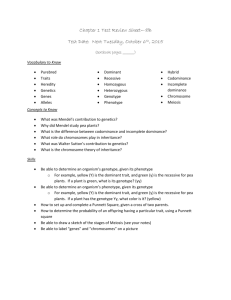Study Guide
advertisement
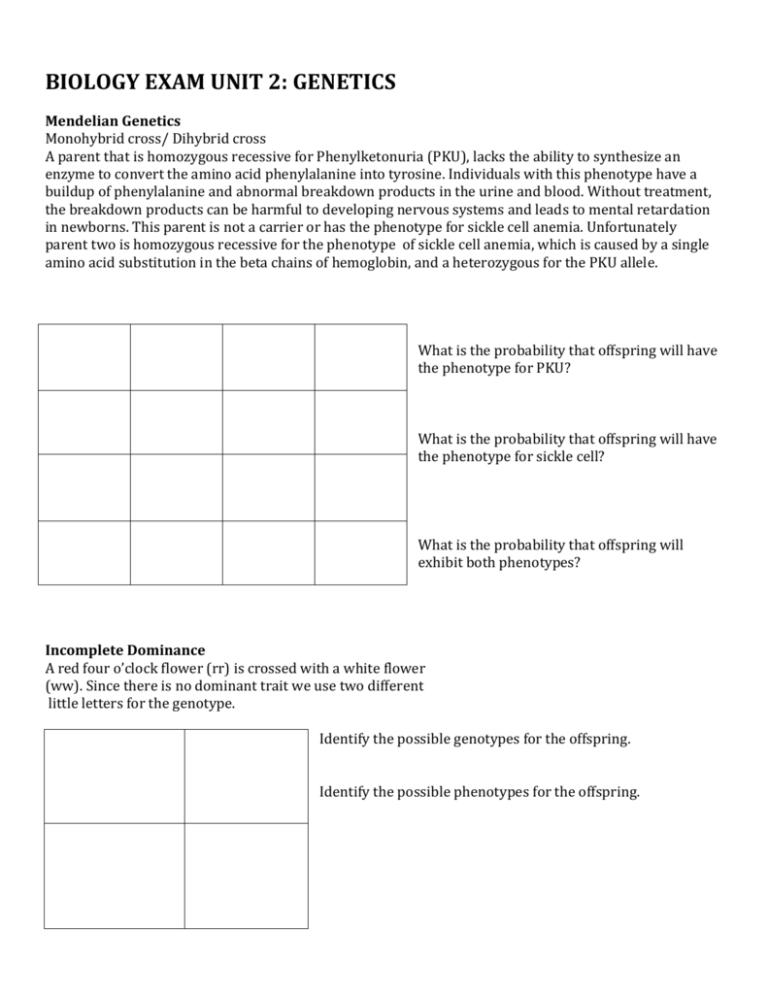
BIOLOGY EXAM UNIT 2: GENETICS Mendelian Genetics Monohybrid cross/ Dihybrid cross A parent that is homozygous recessive for Phenylketonuria (PKU), lacks the ability to synthesize an enzyme to convert the amino acid phenylalanine into tyrosine. Individuals with this phenotype have a buildup of phenylalanine and abnormal breakdown products in the urine and blood. Without treatment, the breakdown products can be harmful to developing nervous systems and leads to mental retardation in newborns. This parent is not a carrier or has the phenotype for sickle cell anemia. Unfortunately parent two is homozygous recessive for the phenotype of sickle cell anemia, which is caused by a single amino acid substitution in the beta chains of hemoglobin, and a heterozygous for the PKU allele. What is the probability that offspring will have the phenotype for PKU? What is the probability that offspring will have the phenotype for sickle cell? What is the probability that offspring will exhibit both phenotypes? Incomplete Dominance A red four o’clock flower (rr) is crossed with a white flower (ww). Since there is no dominant trait we use two different little letters for the genotype. Identify the possible genotypes for the offspring. Identify the possible phenotypes for the offspring. Multiple Alleles In humans, there are four types of blood; type A, type B, type AB, and type O. The alleles A and B are codominant to each other and the O allele is recessive to both A and B alleles. So a person with the genotype AA or AO will have A type of blood. a. What possible genotypes will produce B type of blood? b. What is the only genotype that will produce O type of blood? c. What is the only genotype that will produce AB type of blood? In the 1950’s, a young woman sued film star/director Charlie Chaplin for parental support of her illegitimate child. Charlie Chaplin’s blood type was already on record as type AB. The mother of the child had type A and her son had type O blood. The judge ruled in favor of the mother and ordered Charlie Chaplin to pay child support costs of the child. Was the judge correct in his decision based on blood typing evidence? Explain why or why not. Sex-linked Traits Hemophilia is a sex-linked trait. A person with hemophilia is lacking certain proteins that are necessary for normal blood clotting. Hemophilia is caused by a recessive allele so use “N” for normal and “n” for hemophilia. Since hemophilia is sex-linked, remember a woman will have two alleles (NN or Nn or nn) but a man will have only one allele (N or n). A woman who is heterozygous (a carrier) for hemophilia marries a normal man: What is the probability that a male offspring will have hemophilia? What is the probability of having a hemophiliac female offspring? DNA structure 1. Identify the four nucleotides. 2. Identify the parts of the backbone 3. Identify the hydrogen bonding. 4. Identify the direction DNA is read. DNA Replication 1. Identify the leading and lagging strands. 2. Identify all the enzymes involved. 3. Identify the controversial discovery of DNA. 4. Summarize the idea of semiconservative replication. Meiosis Explain each of the following laws. Identify when they occur in meiosis? Law of Independent Assortment Law of Segregation Who was Gregor Mendel, and why is he called the Father of Genetics? Protein Synthesis Transcription Process this to make it mature 1. Identify the process of RNA splicing. 2. Compare and Contrast DNA and RNA. Translation Using the following sequence, identify the resulting peptide chain. A-U-G-G-A-A-C-A-U-G-G-G-U-A-A Describe 3 types of mutations that can occur in this process. Inheritance Read a pedigree chart a. Place the genotypes of each individual below its symbol. b. What is the genotype of individual #3 and 4?. c. Can either individual #8 or 9 be homozygous? d. Explain the family relationship that #12 has with #2. Draw a Pedigree Chart A blue-eyed man (1) whose parents were brown eyed (2 & 3), marries a brown eyed woman (4), whose father was brown eyed (5) and whose mother (6) was blue eyed. They have one female child who is blue eyed (7). Blue eyes are recessive. a. Make a pedigree chart based on the above information. b. Label the genotypes of the individuals in the chart.
